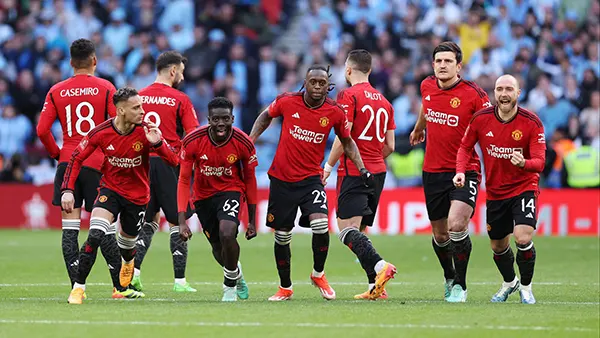The Growth of Sponsorship Deals Between Premier League Clubs and Betting Companies Over 22 Years

The relationship between football and the betting industry has evolved significantly over the past two decades. The Premier League, often regarded as the pinnacle of club football, has witnessed a remarkable increase in sponsorship deals with betting companies. Since Fulham became the first club to sign such a deal, the trend has grown by an astounding 1000%. This article explores the historical development, the current state of affairs, and the implications of these sponsorship agreements.
The Origins of Betting Sponsorship in the Premier League
Back in 2002, Fulham FC set a precedent by signing a sponsorship deal with Betfair, marking the first official partnership between a Premier League club and a betting company. This collaboration opened the doors to a new revenue stream, especially for smaller clubs looking to compete financially with their wealthier counterparts. At that time, betting sponsorships were a novelty, representing a niche but promising sector within football marketing.
The initial reaction to betting sponsorships was mixed, with traditionalists raising concerns about gambling’s influence on football’s image. However, the financial benefits became undeniable, especially for clubs outside the top tier. This groundbreaking deal set the stage for other clubs to follow, sparking interest from betting companies eager to expand their market reach through football’s unparalleled popularity.
Fulham’s Deal: A Game-Changer
Fulham’s agreement with Betfair not only provided financial stability but also highlighted the potential for betting companies to gain exposure through football. The deal demonstrated how a mutually beneficial relationship could emerge, allowing smaller clubs to bolster their finances while enabling betting brands to tap into the Premier League’s expansive global audience. This success story paved the way for what would become a transformative trend across the league.
The Surge in Sponsorship Agreements Over Two Decades
Fast forward to 2024, and nearly 60% of Premier League clubs have some form of sponsorship agreement with betting companies. From shirt sponsorships to stadium naming rights, these deals have become a cornerstone of financial strategy for many teams. The 1000% growth rate in such partnerships underscores the mutual benefits for clubs and betting brands.
This growth can also be attributed to the Premier League’s unmatched ability to draw in global audiences. With lucrative broadcasting deals, the league’s viewership spans continents, offering unparalleled marketing opportunities for betting companies. As clubs compete for top talent and trophies, these sponsorships provide vital funding to remain competitive both on and off the field.
Key Factors Driving Growth
The explosion in betting sponsorships can be attributed to several factors:
- Global Reach of the Premier League: The league’s broadcast rights extend to over 200 countries, making it an attractive platform for betting companies aiming to capture international markets.
- Regulatory Evolution: Changes in gambling laws across the UK and Europe have made such sponsorships more feasible and lucrative.
- Technological Advancements: The rise of online and mobile betting has created an alignment between the digital audience of football and the services offered by betting companies.
Additionally, the alignment of football’s high-paced matches with live betting options has further strengthened this relationship. Betting companies have leveraged digital platforms to engage fans in real time, creating interactive experiences that enhance the sport’s appeal while driving revenue.

Ethical and Regulatory Considerations
Despite the financial benefits, these partnerships have not been without controversy. Critics argue that the prominence of betting brands in football normalises gambling, especially among younger fans. Regulatory bodies have responded by imposing restrictions, such as banning betting ads during live broadcasts before 9 PM, to mitigate potential harm.
Public awareness campaigns and responsible gambling initiatives have also gained traction, aiming to balance the economic benefits with societal responsibility. Betting companies and clubs have increasingly invested in programmes that promote responsible gambling, signalling a shift towards a more sustainable approach to these partnerships.
The Future of Betting Sponsorships
The sustainability of these sponsorship deals depends on balancing commercial interests with social responsibility. Clubs and betting companies alike are under increasing pressure to adopt ethical marketing practices and support initiatives promoting responsible gambling. The introduction of stricter advertising regulations may shape the future dynamics of these partnerships.
While the financial incentives remain strong, the football industry must navigate evolving societal attitudes towards gambling. By fostering transparency and prioritising ethical considerations, clubs and betting companies can ensure these partnerships continue to thrive without compromising their reputation or alienating fans.
In conclusion, the symbiotic relationship between the Premier League and betting companies has evolved from a groundbreaking partnership with Fulham into a significant revenue stream for clubs. As the industry continues to grow, maintaining ethical practices and navigating regulatory landscapes will be crucial for the longevity of these collaborations.




